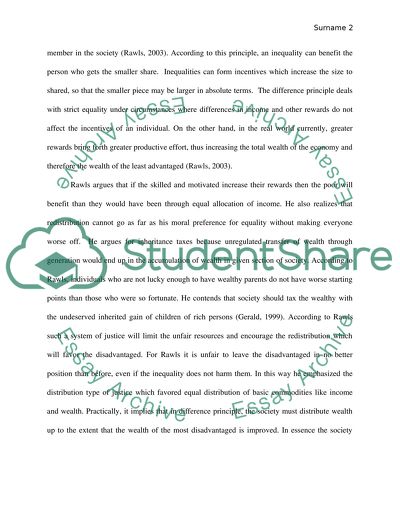Rawls's Theory of Distributive Justice Essay Example | Topics and Well Written Essays - 1250 words. Retrieved from https://studentshare.org/philosophy/1438865-between-the-four-rival-theories-of-distribution
Rawls'S Theory of Distributive Justice Essay Example | Topics and Well Written Essays - 1250 Words. https://studentshare.org/philosophy/1438865-between-the-four-rival-theories-of-distribution.


